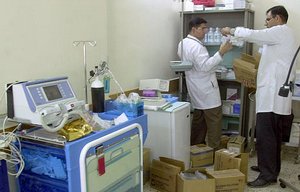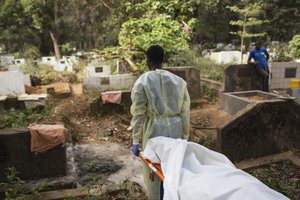
Béla Kun (1886-1938), born Béla Kohn, was a Hungarian revolutionary who led the Hungarian Soviet Republic in 1919. Following the fall of the Hungarian revolution, Kun emigrated to the Soviet Union, where he worked as a functionary in the Communist International bureaucracy.
During the Great Terror of the late 1930s, Kun was arrested, interrogated, tried, and executed in quick succession. He was posthumously rehabilitated in 1956, following the death of Joseph Stalin and the critical reassessment of Stalinism.
Béla Kohn, latter known as Béla Kun, was born on 20 February 1886 in the village of Lele, located near Szilágycseh, Transylvania, Austria-Hungary (today Lelei, Romania). The Kohn family were ethnic Jews, and his father worked as a village notary.
Despite his parents' secular outlook, he was educated at the Calvinist College in Zalău and a famous Reformed kollegium (grammar school) in the city of Kolozsvár (modern Cluj-Napoca, Romania).
At the kollegium Kun won the prize for best essay on Hungarian literature that allowed him to attend a gymnasium. Kun's essay was on the poet Sándor Petőfi and his concluding paragraphs were:
This article is licensed under the Creative Commons Attribution-ShareAlike 3.0 Unported License, which means that you can copy and modify it as long as the entire work (including additions) remains under this license.
- Loading...

- Aladár Zichy
- Allies
- Anarchism
- Aster Revolution
- Austria-Hungary
- Austria–Hungary
- Bailiff
- Bolshevik
- Boulder
- Brunó Ferenc Straub
- Budapest
- Béla Imrédy
- Béla Kun
- Béla Miklós
- Béla Orczy
- Béla Wenckheim
- Cehu Silvaniei
- Civil law notary
- Cluj-Napoca
- Collective farming
- Comintern
- Coup
- Crimea
- Czechoslovakia
- De-Stalinization
- Dezső Bánffy
- Donald Rayfield
- Duel
- Dénes Berinkey
- Döme Sztójay
- Endre Ady
- Endre Puky
- Endre Sík
- Erik Molnár
- Ernő Mihályfi
- Ervin Roszner
- F. A. Praeger
- February Revolution
- Ferdinand Foch
- Ferenc Harrer
- Ferenc Mádl
- Ferenc Somogyi
- Ferenc Szálasi
- Fernand Vix
- Frigyes Puja
- Functionary
- Great Purge
- Grigory Zinoviev
- Gulag
- Gusztáv Gratz
- Gusztáv Hennyey
- Gymnasium (school)
- Gyula Gömbös
- Gyula Horn
- Gyula Kállai
- Gyula Károlyi
- Gyula Peidl
- Gyula Széchényi
- György Festetics
- Gábor Tánczos
- Géza Daruváry
- Géza Fejérváry
- Géza Jeszenszky
- Halle, Saxony-Anhalt
- Hamburg
- History Today Inc.
- Hungarian language
- Hungarian literature
- Hungary
- Imperial Russia
- Imre Horváth
- Imre Nagy
- Inflation
- Intelligentsia
- István Bethlen
- István Burián
- István Csáky
- István Dobi
- István Friedrich
- István Tisza
- Jan Smuts
- Jenő Ghyczy
- Jews
- Joseph Stalin
- Journalist
- János Boldóczki
- János Gyöngyösi
- János Martonyi
- János Péter
- János Áder
- József Pogány
- József Somssich
- Karl Radek
- Kinga Göncz
- Kingdom of Romania
- Krupp
- Kálmán Kánya
- Kálmán Széll
- Kálmán Tisza
- Károly Huszár
- Károly Kiss
- Károly Németh
- Kázmér Batthyány
- Lajos Tisza
- Lajos Walko
- Lelei
- Lenin Boys
- László Bárdossy
- László Kövér
- László Lukács
- László Rajk
- László Sólyom
- Manó Széchényi
- March Action
- Mario Fenyo
- Max Hoelz
- Memento Park
- Mihály Károlyi
- Miklós Bánffy
- Miklós Horthy
- Miklós Kállay
- Muckraker
- Márton Lovászy
- Mátyás Rákosi
- Mátyás Szűrös
- Nationalization
- Oberpräsident
- OGPU
- Otto Horsing
- People's Commissar
- Personal name
- Petrograd
- President of Hungary
- Prisoner of war
- Propaganda
- Pál Esterházy
- Pál Losonczi
- Pál Schmitt
- Pál Teleki
- Péter Balázs
- Péter Várkonyi
- Péter Ágoston
- Red Army
- Red Terror (Hungary)
- Romania
- Russian Civil War
- Ruth Fischer
- Sandor Garbai
- Saxony
- Secret police
- Slovakia
- Social Democrat
- Soviet Union
- Stalinism
- Strike action
- Szeged
- Sándor Garbai
- Sándor Petőfi
- Sándor Rónai
- Telegraph
- Tibor Scitovszky
- Tibor Szamuely
- Tivadar Batthyány
- Transylvania
- Treaty of Trianon
- Trotskyism
- Ukraine
- Umberto Terracini
- Unemployment
- Urals
- Victor Serge
- Vienna
- Vix Note
- Vladimir Lenin
- White Army
- White movement
- White Terror
- Wikipedia Persondata
- World War I
- Zoltán Tildy
- Árpád Göncz
- Árpád Szakasits
- Adolf Hitler
- Aladár Zichy
- Brunó Ferenc Straub
- Béla Imrédy
- Béla Kun
- Béla Miklós
- Béla Orczy
- Béla Wenckheim
- Dezső Bánffy
- Donald Rayfield
- Dénes Berinkey
- Döme Sztójay
- Endre Ady
- Endre Puky
- Endre Sík
- Erik Molnár
- Ernő Mihályfi
- Ervin Roszner
- Ferdinand Foch
- Ferenc Harrer
- Ferenc Mádl
- Ferenc Somogyi
- Ferenc Szálasi
- Frigyes Puja
- Grigory Zinoviev
- Gusztáv Gratz
- Gusztáv Hennyey
- Gyula Gömbös
- Gyula Horn
- Gyula Kállai
- Gyula Károlyi
- Gyula Peidl
- Gyula Széchényi
- György Festetics
- Gábor Tánczos
- Géza Daruváry
- Géza Fejérváry
- Géza Jeszenszky
- Imre Horváth
- Imre Nagy
- István Bethlen
- István Csáky
- István Dobi
- István Friedrich
- István Tisza
- Jan Smuts
- Jenő Ghyczy
- Jews
- Joseph Stalin
- János Boldóczki
- János Gyöngyösi
- János Martonyi
- János Péter
- János Áder
- József Somssich
- Karl Radek
- Kinga Göncz
- Kálmán Kánya
- Kálmán Széll
- Kálmán Tisza
- Károly Huszár
- Károly Kiss
- Károly Németh
- Kázmér Batthyány
- Lajos Tisza
- Lajos Walko
- László Bárdossy
- László Kövér
- László Lukács
- László Rajk
- László Sólyom
- Manó Széchényi
- Mihály Károlyi
- Miklós Bánffy
- Miklós Horthy
- Miklós Kállay
- Muckraker
- Márton Lovászy
- Mátyás Rákosi
- Mátyás Szűrös
- Pál Losonczi
- Pál Schmitt
- Pál Teleki
- Péter Balázs
- Péter Várkonyi
- Péter Ágoston
- Russian Civil War
- Ruth Fischer
- Sándor Garbai
- Sándor Petőfi
- Sándor Rónai
- Tibor Scitovszky
- Tibor Szamuely
- Tivadar Batthyány
- Victor Serge
- Vladimir Lenin
- Wikipedia Persondata
- World War I
- Zoltán Tildy
- Árpád Göncz
- Árpád Szakasits
- Playlist
- Chat
-
Lyrics list:lyrics
-
Bubblegun
-
People Know
-
People You Knew
-
People I Know
-
People Again
Bubblegun
Take this migraine everywhere I go
Take the fast lane everywhere I go
Take this migraine everywhere I go
Someday, gonna take it slow
Take this migraine everywhere I go
Take the fast lane everywhere I go
Take this migraine everywhere I go
Someday, gonna take it slow
I wanna turn you on
Feels like a loaded gun
Spit out your Bubblegum
I wanna...Wanna...
I wanna turn you on
Feels like a loaded gun
Spit out your Bubblegum
I wanna... I Wanna...
I wanna, I wanna
Judge: Starbucks May Be In A Latte Of Trouble
Edit WorldNews.com 21 Jun 2016Pakistani Man Injured In Acid Attack By Girlfriend Dies
Edit WorldNews.com 21 Jun 2016New iPhone 7 Release Date Rumors: Leak Claims iPhone Headphone Jack Will Remain, Dual Sim ...
Edit Inquisitr 21 Jun 2016New Funeral Service Dissolves Dead People And Dumps Remains Into Sewer
Edit IFL Science 21 Jun 2016Lagging in fundraising, Trump calls on GOP for support
Edit Naples Daily News 21 Jun 2016We Ask of Four More Years (Prime Minister of Hungary)
Edit noodls 03 Apr 2014- 1
- 2
- 3
- 4
- 5
- Next page »







